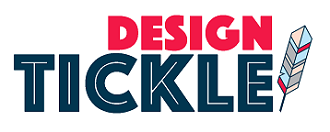
Laser cutting is revolutionizing the automotive industry, offering significant benefits in the production of various vehicle components. This advanced technology is rapidly gaining traction due to its precision, speed, and ability to handle complex designs. As the automotive sector continues to evolve, laser cutting is increasingly being integrated into manufacturing processes, enhancing efficiency and reducing costs.
The Role of Laser Cutting in Automotive Manufacturing
In automotive production, laser cutting plays a vital role in creating parts with high accuracy. The technology uses a focused laser beam to cut materials with extreme precision, ensuring tight tolerances and intricate designs. This makes it an ideal solution for parts like body panels, brackets, and engine components, where precision is crucial. Laser cutting also eliminates the need for tooling changes, which is especially valuable in high-volume production environments.
Improved Efficiency with Laser Cutting Technology
One of the main reasons laser cutting has become so popular in automotive parts production is its efficiency. Traditional methods, such as stamping or punching, can be time-consuming and require multiple steps. Laser cutting, on the other hand, can perform cuts, engravings, and even perforations in one seamless process. This reduces the overall production time, which is particularly important for manufacturers aiming to meet tight deadlines and high demand.
Laser Cutting for Complex and Custom Parts
The automotive industry is increasingly moving toward customization, and laser cutting offers unparalleled flexibility for creating complex, custom parts. Unlike traditional manufacturing techniques that rely on molds or dies, laser cutting can easily produce parts with intricate designs. This is particularly valuable in the production of specialized or low-volume components, where precision and uniqueness are required. With laser cutting, manufacturers can produce custom parts that meet the exact specifications of each vehicle model.
Laser Cutting and Material Versatility
Another advantage of laser cutting is its ability to handle a wide range of materials. In the automotive industry, parts are often made from various metals, plastics, and composites. Laser cutting can handle these materials with ease, ensuring clean cuts without compromising the material’s integrity. Whether it’s steel, aluminum, or even advanced materials like carbon fiber, laser cutting offers consistent, high-quality results across a broad spectrum of materials.
Cost-Effective Production with Laser Cutting
Despite the initial investment in laser cutting technology, it proves to be a cost-effective solution in the long run. The precision of laser cutting reduces material waste, which can lead to substantial savings over time. Moreover, the automation capabilities of laser cutting machines reduce labor costs by streamlining the production process. With fewer steps involved in creating each part, manufacturers can lower their overall production expenses while maintaining high standards of quality.
Enhancing Safety and Quality with Laser Cutting
Laser cutting not only improves efficiency but also enhances safety and product quality in automotive parts production. The precision of the laser minimizes the risk of defects, such as warping or burrs, which can be problematic in traditional cutting methods. Additionally, because laser cutting is a non-contact process, there is less risk of damage to the material being cut.
Conclusion
Laser cutting is transforming the automotive parts production process. Its ability to produce high-precision, cost-effective, and customizable components makes it a game-changer for the industry. As automotive manufacturers continue to embrace new technologies, laser cutting will remain a critical tool in achieving greater efficiency and innovation in production. With its versatility and ability to meet complex design requirements, laser cutting is set to shape the future of automotive manufacturing.




